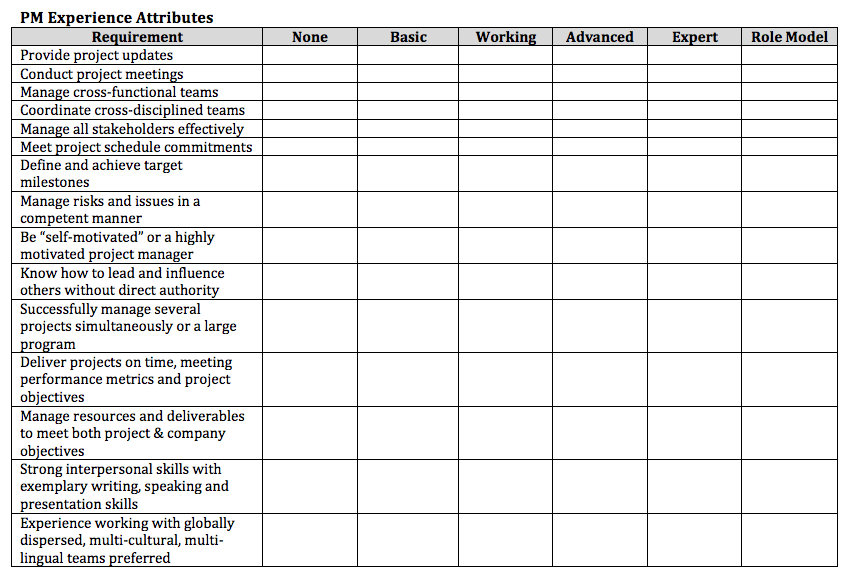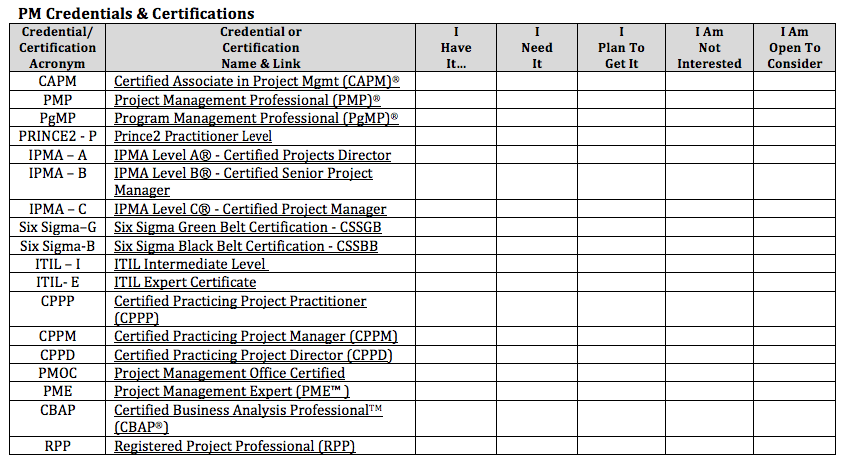Employment trends and the project manager
Other requirements will often be included; we have not covered each and every eventuality. It is fair to say that many project management postings today state that ‘a project management type credential or certification is preferred’. Different industries (construction, IT, etc.) tend to ask for some specific certification or group membership. The wording for the certification required ranges from ‘preferred’, ‘a plus’, ‘highly desirable’, or in some cases ‘required’. In some cases, postings suggest that multiple credentials would be desirable, but this is not always the case. Critical as well is the need for relevant experience—we will come on to this later.
Being a professional program/project management practitioner means that you should perform actions that lead to predictive, positive consequences and outcomes, not only in your projects and programs but also in your career. What is exceptional today is expected as the norm tomorrow, and the second that you rest on your laurels is the day you fully retire. Therefore, it is incumbent upon you to be personally prepared: as the saying goes, ‘only the paranoid survive’.
Preparing for the project management job market
We have a few suggestions that may help you plan for the time that you need to be competitive in the marketplace. Using the matrix below, objectively score yourself in the appropriate column. You may also find it beneficial to print or send this to a few trusted colleagues and ask them to score you. Use the ratings as a baseline; if there are any areas in which you believe need improvement, set a goal to seek out those experiences.
Having completed the above matrix, and perhaps after obtaining feedback from those that you know and trust, review the common project management credentials and certifications we found in various job descriptions. Decide if there are any that you either need or plan to obtain. Note: we have not listed all credentials possible, but have focused on those that are most common.
If you have decided to improve your experience attribute level and/or to obtain a new project management-related credential or certification, set a goal for yourself to do both. At a minimum, we suggest either improving one skill, perhaps something you can focus on in your continuing professional development at work, and/or obtaining one additional certification that can actively contribute to your self-improvement every year. In this way, you are steadily making real career improvements, learning new skills, and keeping yourself relevant, both for the benefit of your current employer and also as preparation for facing an ever-changing and challenging international job market, should you ever be in such a position.
Critical to the decision to hire is the candidate’s experience to match the job required. Individuals always need to bear in mind that they need to continually demonstrate ‘on the ground experience’ that will entice an employer to select them for interview. It is undoubtedly true that experience counts. Things you might want to consider are as follows: What is the toughest assignment you have had to manage so far? How can you prove what you have really achieved to a prospective employer? How will you show that you can perform a prospective job better than anyone else?
In conclusion, as we all know, experience that matches the role is always critical and this requires careful thought when applying for a new role within the organisation you work for or elsewhere. We also think there are some common project management skill attributes and also some appropriate certifications/credentials mentioned in job descriptions, recognising that different regional geographies and industries will ask for specific credentials that suit their needs.
Regardless of your employment status, if you are a project management practitioner, there is a genuine benefit to be gained by continually improving both your experience and/or obtaining a new project management related credential or certification, ideally one new certification per year. Among other things, this will help maintain your competitiveness in the job market should you ever need or want to try something new.



